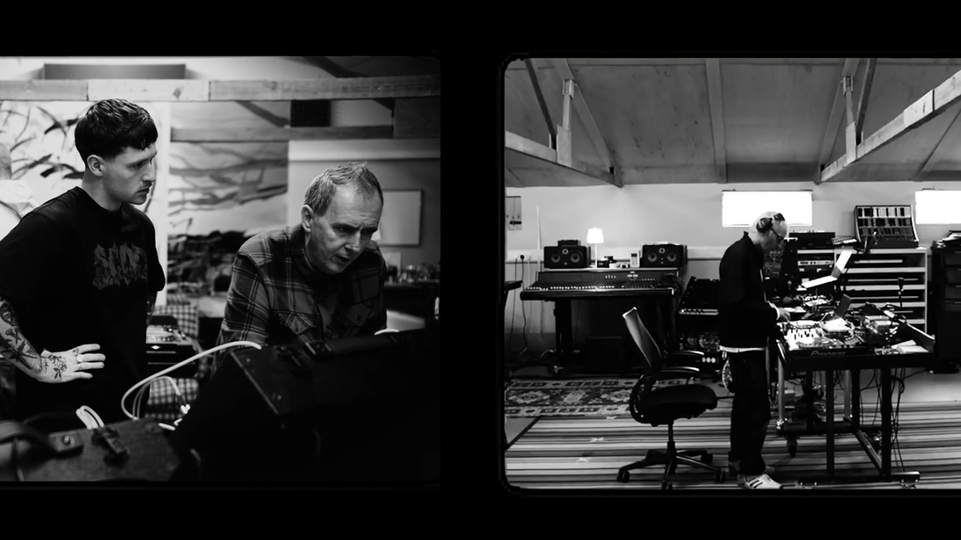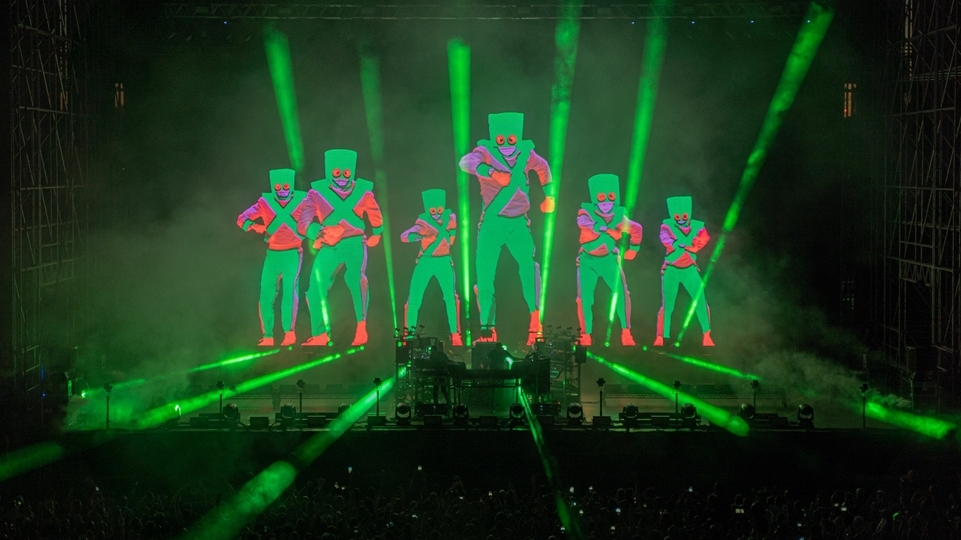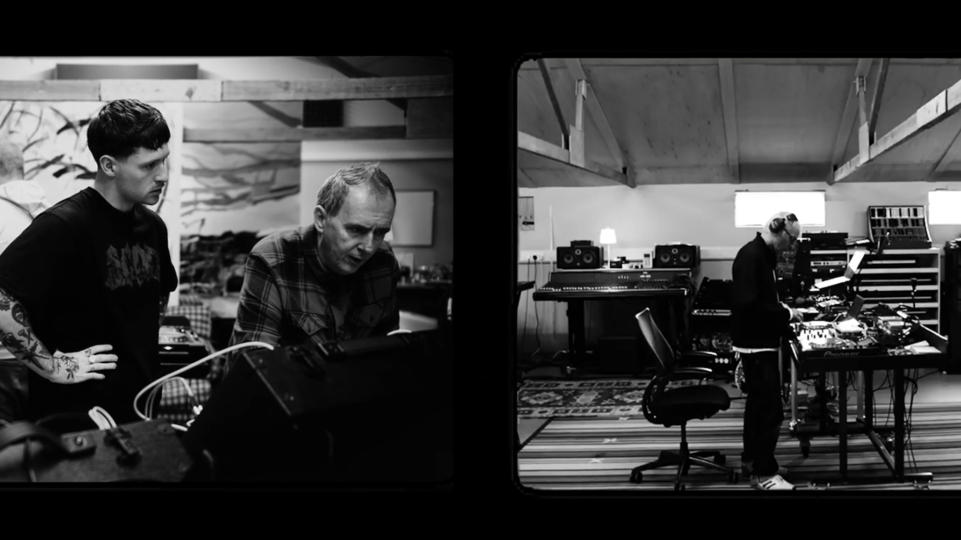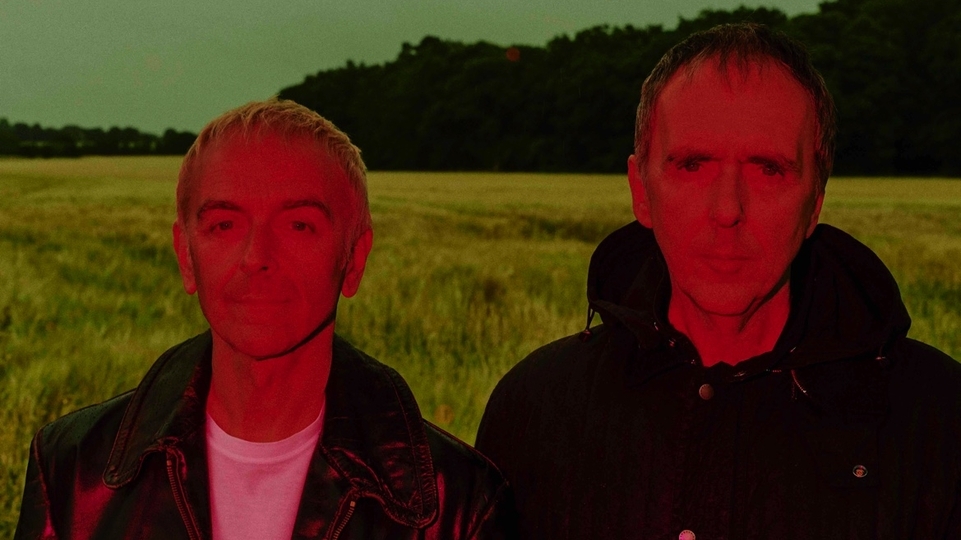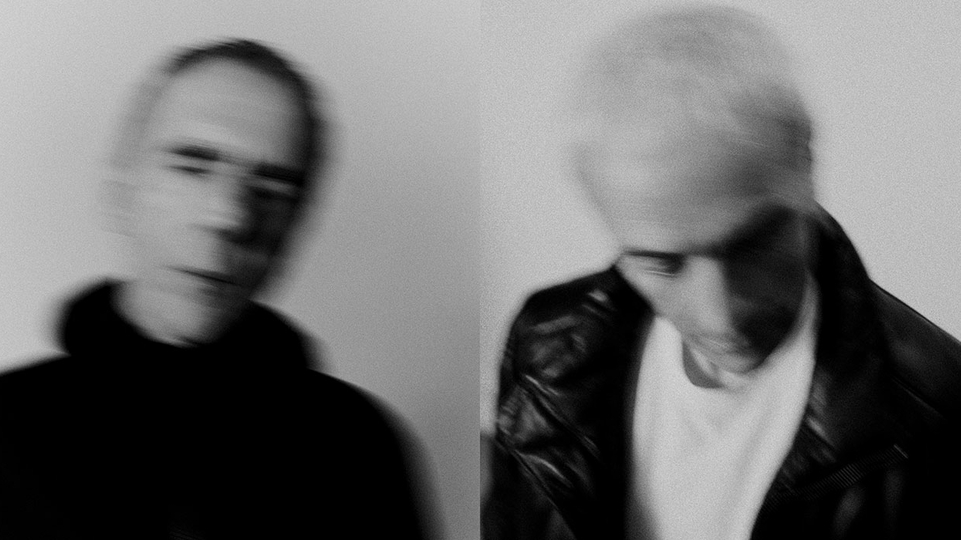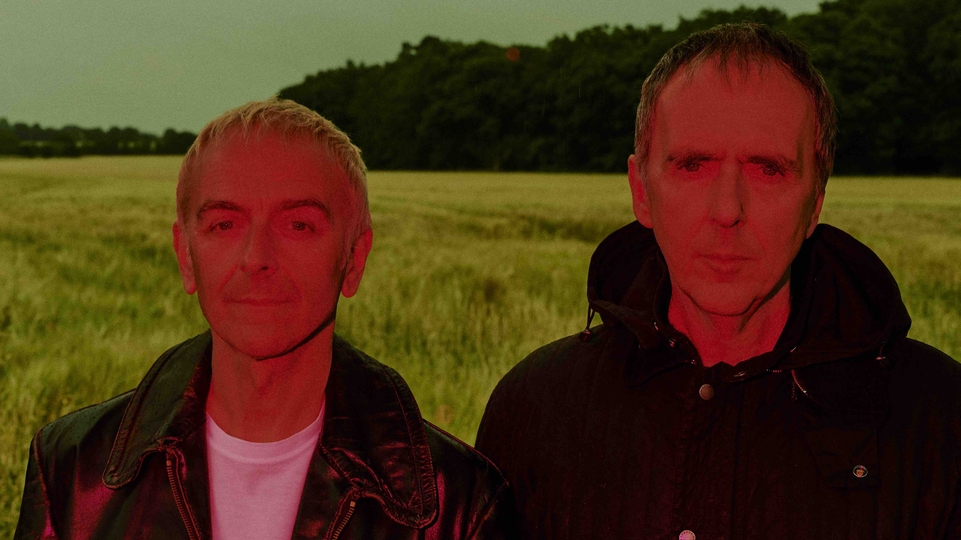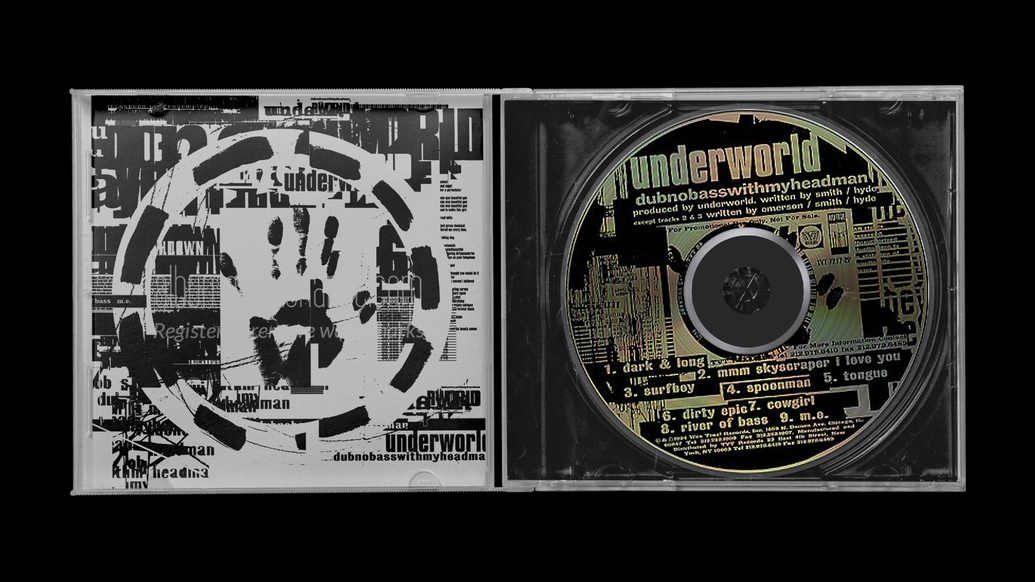
How Underworld alchemised rave and rock on 1994's ‘Dubnobasswithmyheadman’
Released on 24th January 1994, Underworld’s third album (and first with DJ Darren Emerson) blended outlandish art-rock ideas with singular takes on house, techno and ambient music. Here, Ben Murphy reflects on its genre-fusing legacy
This feature was originally published in 2019 for the 25th anniversary of ‘Dubnobasswithmyheadman’
In 1994, live performances by UK dance acts were big news. Electronic bands who straddled the divide between club sounds and song-styled accessibility were in vogue. The Prodigy, The Shamen, The Orb and 808 State all played gigs rather than DJ sets — a gateway drug for indie kids — and Orbital’s barnstorming set at Glastonbury converted a fair few to a life of beats and bass. None, however, were quite like Underworld, who, with their third album (and first with DJ Darren Emerson), blended outlandish art-rock ideas with singular takes on house, techno and ambient music. 30 years later, ‘Dubnobasswithmyheadman’ has aged gracefully, all thanks to the band’s refusal to be trapped by any one genre.
‘Dubnobasswithmyheadman’ has everything, from ‘Surf Boy’s delirious acid house, dub FX, and propulsive club drums, to ‘Tongue’s denuded ambient sliver of dawn-rise guitar. ‘Cowgirl’ — with its looped, layered vocals, spiky synth line and thundering percussion — could cause clubs and concert halls alike to erupt; the mellow, bass-led funk of ‘River Of Bass’ is a sonic balm to soothe sore heads post-rave. Knitting it all together was an urge to experiment, and a drive to hook in the listener with melodies and vocal phrases that stepped away from the diva samples and acid gurgles that were then so prevalent in dance records.
On this album, Karl Hyde’s vocals were a malleable instrument, able to switch from mellifluous tones to adopted personalities, imitating accents and conjuring evocative imagery with spoken word monologues. Hyde’s lyrics were a strange stream of consciousness, the result of listening in to conversations while on public transport, then cutting up the words, William Burroughs style, and rearranging them into non-sequiturs spun out as stories. These words, paired with Underworld’s unearthly electronics, took on an extraordinary power. As Dorian Lynskey said in his 2014 Guardian feature around the album’s 20th anniversary reissue, “Hyde is less a frontman than a conduit for a torrent of images, stray thoughts and overheard dialogue while the music has a vast, architectural quality, evoking railway tracks, alleyways, high-rises and secret corners”.
Underworld had been going a long time before they achieved success, and it took a shift into dance music to affect that change. Rick Smith, from Ammanford, Wales, and Karl Hyde, from Bewdley, Worcestershire, met in Cardiff while studying, and formed post-punk band The Screen Gemz, releasing one single in 1979. In the early ’80s, Smith and Hyde started synthpop group Freur, and released two albums through major labels Epic and CBS, ‘Doot-Doot’ and ‘Get Us Out Of Here’. They re-emerged in 1988 as Underworld, producing two more long-players. But their fortunes changed when the pair moved to Romford in Essex where they met Darren Emerson and became a trio.
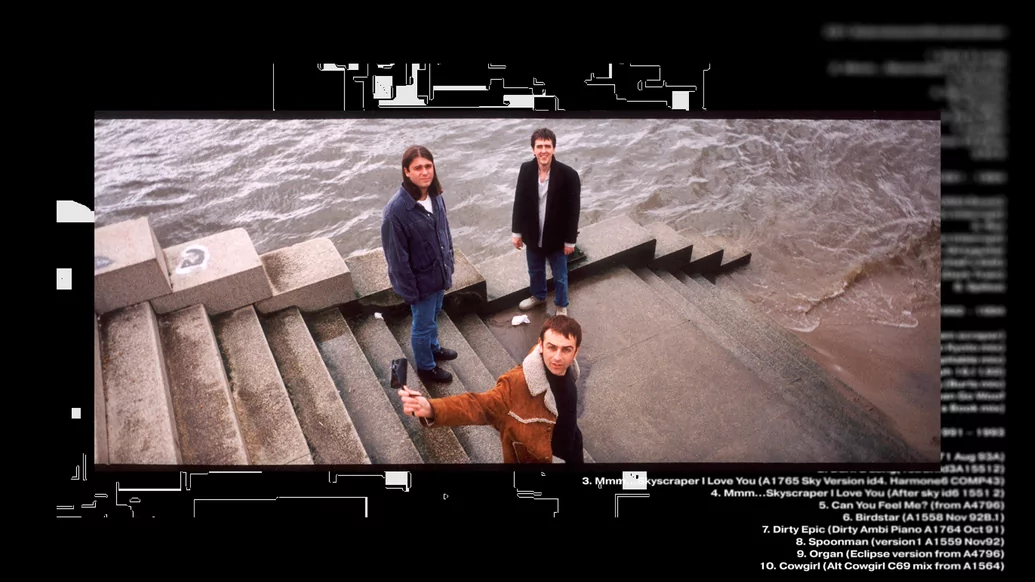
Initially recording as Lemon Interrupt, the trio’s style chimed with the sounds of the progressive house scene of the time. 1992’s capacious ‘Dirty’, released through Junior Boy’s Own, and the harmonica laden follow up ‘Big Mouth’, were huge underground hits. But when they returned to the Underworld moniker with singles ‘Rez’ and ‘Mmm Skyscraper I Love You’, they hit upon something truly different.
‘Mmm Skyscraper I Love You’, included on ‘Dubnobasswithmyheadman’, contains all the ingredients of their trademark sound. The seemingly nonsensical title, and other lyrics (“I see porn dogs sniffing the wind for something new / Something violent that they could do”), nodded to Hyde’s fevered cut ‘n’ paste scribbling, while the production, with its pulsating house bass, rolling breakbeat percussion and bittersweet ambient coda, indicated Darren Emerson’s club expertise as much as it did Rick Smith’s gift for synth melodies.
‘Mmm Skyscraper I Love You’ also indicated Underworld’s inventive repurposing of conventional instruments. Hyde treated his only occasionally used electric guitar as a textural device, sending out squalls of feedback and noise over the beats in a way more redolent of post-rock than anything in techno at that time. On the album’s centrepiece, ‘Dirty Epic’, jagged guitars jut out of the speaker, but not until the final third of the song. Here, that great rock signifier becomes just another shade in Underworld’s broad palette. Along with the presence of Hyde’s vocals and his energy as a frontman, it gave them a visual and sonic identity that rock fans could latch onto.
Their merging of the worlds of rave and rock can be seen in modern acts such as LCD Soundsystem. As Nick Neyland pointed out in his Pitchfork review of the album’s 20th anniversary reissue in 2014, “It’s not hard to see some of Hyde in James Murphy and vice versa, especially as both were old hands coming to this game, bringing a dose of reflection to music that’s so often focused solely on the now”.
In among the indecipherable chains of thought apparent in Hyde’s lyrics, were clearer themes. ‘Dirty Epic’ has swells of ghostly church organ and tear-stained vocals, plus a strange feeling of defiled spirituality suggested by the lyrics: “Ride the sainted rhythms on the midnight train to Romford”, “Here comes Christ on crutches”, “I feel so shaken in my faith”. Elsewhere, the ecological message of ‘M.E’ (an acronym for ‘Mother Earth’) singled out climate criminals with the stinging line: “You just rip off the planet / and take what you want / I’m coming to get you”.
Darren Emerson’s presence on ‘Dubnobasswithmyheadman’ was key. It was clear this music came from a deep understanding of club culture absent in Underworld’s earlier material. It was Emerson’s knowledge as a DJ, synthesised with Hyde and Smith’s experience of song craft, that made the album so special. A finely tuned balance of rock and dance that few others, even today, have managed to get right.


